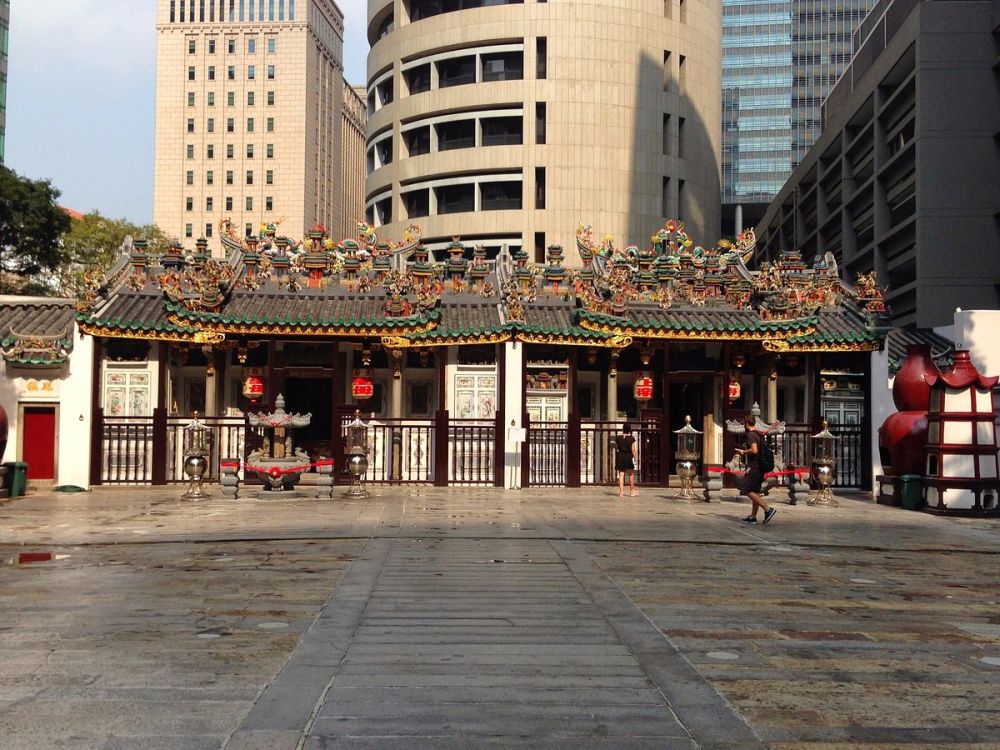

The Yueh Hai Ching Temple, nestled in the heart of Chinatown, is an epitome of Chinese cultural heritage in Singapore. Also known as the Wak Hai Cheng Bio in Teochew, which translates to the "Temple of the Calm Sea," it was built by Teochew Chinese immigrants in the 1820s. The temple serves as a testament to the religious devotion of the early Chinese settlers and is dedicated to Mazu, the Taoist goddess of the sea, safeguarding the fishermen and sailors.
Over the years, Yueh Hai Ching Temple has undergone several renovations, the most notable one completed in 1855, which introduced intricate ornamentation and detailed carvings that we see today. In recognition of its outstanding historical and social significance, the temple was awarded the UNESCO Asia-Pacific Heritage 2001 Awards for Culture Heritage Conservation, and it is currently a National Monument in Singapore.
Singapore's journey as a global tourism destination began in the colonial era when it was established as a British trading post in 1819. Its strategic location made it a hub for trade and the crossroads of East and West. However, the formal initiation of tourism in Singapore can be traced back to the early 20th century, with the creation of the Raffles Hotel in 1887 and the Singapore Tourism Board (STB) in 1964. The STB was pivotal in promoting Singapore as a must-visit destination, with the "Garden City" and "Instant Asia" campaigns effectively branding the country's unique selling propositions.
Following its independence in 1965, Singapore embarked on a mission to diversify its economy, with tourism identified as a key pillar. The opening of the Singapore Zoo in 1973, Jurong Bird Park, and the initial staging of the iconic Singapore Grand Prix in 1966 were strategic moves to enhance its appeal.
In recent years, Singapore's tourism landscape has been characterized by bold and innovative developments, including the completion of Marina Bay Sands and the integrated resort Sentosa, which houses Universal Studios Singapore, further cementing Singapore’s status as a versatile destination for all age groups.
Sustainable Tourism has been at the forefront of Singapore's latest tourism trends, with initiatives such as the Green Plan 2030 focusing on sustainable practices within the industry.
Experiential Tourism is another emerging trend, as visitors seek more immersive and authentic experiences. Local tours, heritage trails, and cultural workshops are increasingly gaining popularity, offering tourists a chance to engage more deeply with Singapore's rich culture and history.
The emphasis on Health and Wellness has grown, particularly in the wake of the COVID-19 pandemic, with tourists now seeking activities that promote mental and physical well-being, including nature-based attractions such as the Botanic Gardens and cycling tours around the city.
With a robust and adaptive tourism strategy, Singapore continues to evolve and offer new and exciting experiences to travelers from around the world.